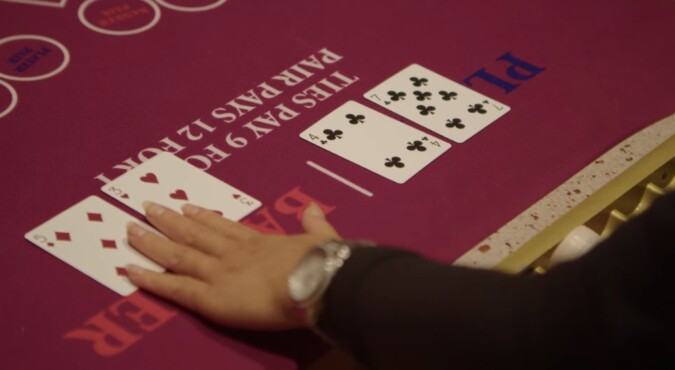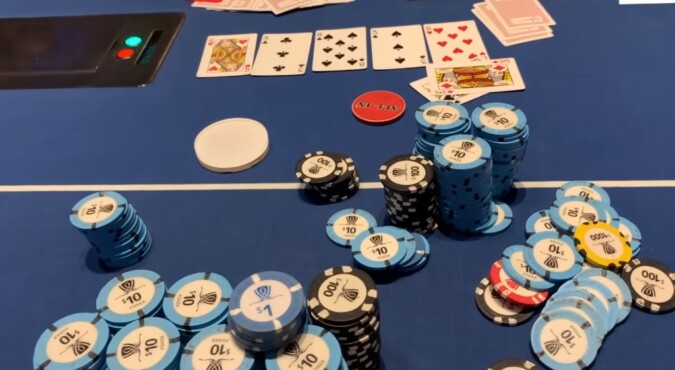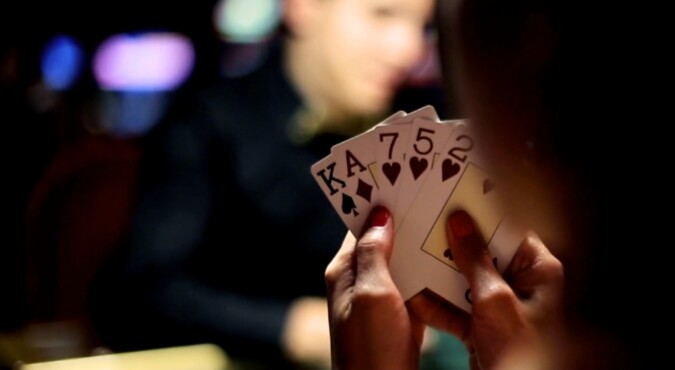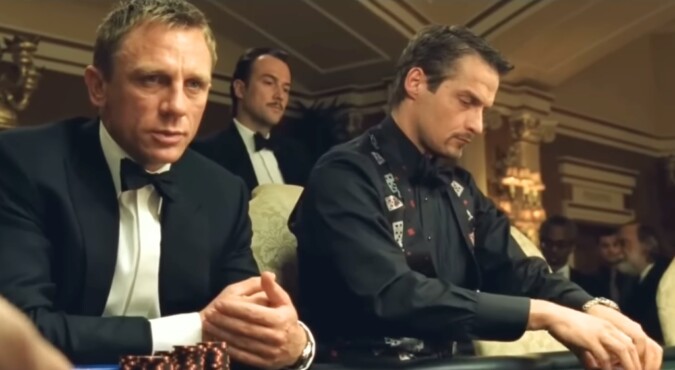The allure of James Bond extends far beyond his license to kill. Over the decades, Bond has emerged as a cultural icon synonymous with suave sophistication, unyielding courage, and a penchant for high-stakes gambling.
His persona encapsulates the daring and wit that defines the quintessential spy, a character crafted with a blend of elegance and danger that has captivated audiences worldwide.
From the card tables of exclusive casinos to the clandestine halls of MI6, Bond’s journey is one of audacious exploits and strategic mastery. His gambling prowess isn’t a mere hobby; it’s a reflection of his analytical mind and unyielding nerve, traits that serve him well in the face of peril.
The green felt table, whether it hosts a game of Baccarat or Poker, serves as a battleground where Bond’s intellectual acumen shines amidst the clash of luck and skill. And if you want, you can feel like James Bond by playing casino games online for free on the popular platform GambleManiacs.
Baccarat: Bond’s Trademark Game

The realm of casino gambling and the suave sophistication of James Bond are almost synonymous, with the timeless allure of Baccarat at its core. This quintessential game of chance, laced with a stroke of strategic prowess, defines the essence of Bond in the early narrative arcs both on screen and in Ian Fleming’s penmanship.
Ian Fleming’s introduction of James Bond in the novel “Casino Royale” was not merely the birth of a spy but a gambler with finesse. Baccarat, particularly the variant Chemin de Fer, was the game through which readers first glimpsed Bond’s cool demeanor under pressure and his analytical acumen.
The high-stakes gambling scenes in the novel are a microcosm of the larger perilous world Bond navigates, showcasing not only his skill but his unyielding nerve.
Cinematic Showdowns: “Dr. No” and “Thunderball”
Transitioning from page to screen, Bond’s affinity for Baccarat was seamlessly carried over. In “Dr. No” (1962), audiences are treated to a glimpse of Bond’s adeptness at the Baccarat table, which sets the tone for his character as a refined yet daring individual.
The tradition continues in “Thunderball” (1965), where Bond’s Baccarat showdowns are more than mere games; they are a battle of wits and nerve, emblematic of the larger ideological warfare he engages in.
In exploring the enduring connection between James Bond and the world of gambling, it’s fascinating to discover how iconic scenes from casino-centric films have played a role in shaping the secret agent’s image, as discussed in the related article.
Symbolism: Baccarat as a Mirror to Bond’s Persona
The choice of Baccarat is emblematic. It’s a game that exudes elegance, requires a blend of luck and skill, and, like Bond’s adventures, often entails high stakes. The nuances of Baccarat gameplay metaphorically mirror Bond’s operational finesse and analytical foresight in the field.
Each decision at the Baccarat table reflects the life-or-death choices Bond makes in the line of duty, underscoring his unyielding resolve and intellectual prowess.
The legacy of Baccarat in the Bond narrative is profound. It’s not merely a game; it’s a narrative device, a window into the mind of MI6’s most illustrious agent. Through the veil of cards and chips, audiences discern the essence of James Bond – a blend of sophistication, daring, and a mind sharpened to tackle the odds, no matter how stacked against him.
Poker: Modernizing Bond’s Gambling Scene

The evolution of James Bond’s character over the decades mirrors the changing tides of popular culture. One of the significant shifts observed in the modern-day portrayal of Bond is his transition from the traditional baccarat tables to the fiercely competitive arena of Poker, notably showcased in “Casino Royale” (2006).
This shift is not merely a change in the game but a nuanced re-imagination of Bond’s gambling facet, appealing to contemporary audiences while staying true to the essence of Bond’s high-stakes ventures.
The shift from Baccarat to Poker in Casino Royale was a deliberate choice to resonate with modern audiences. Poker, particularly Texas Hold’em, enjoyed a surge in popularity in the early 2000s, thanks to televised tournaments and online platforms.
By adopting Poker as Bond’s game of choice, the franchise embraced a game that was recognizable and exciting to contemporary viewers, making Bond’s gambling exploits more engaging and relatable.
Maintaining Bond’s Essence Amidst Change
While Baccarat had an air of exclusivity and old-world charm, Poker brings a gritty, competitive edge that aligns well with the modernized portrayal of Bond. Despite the change in scenery, the essence of high-stakes gambling that defines Bond’s character remains intact.
The tension, the strategy, and the inherent risk of the game are all elements that continue to echo the traditional gambling scenes of earlier films, ensuring a seamless transition in Bond’s character arc.
Poker Scenes: A Metaphorical Battlefield
The poker table in “Casino Royale” is more than just a place for a friendly game; it’s a battlefield where Bond and the antagonist, Le Chiffre, lock horns. Every bet, bluff, and call is charged with strategic intent, mirroring the espionage duel unfolding beyond the casino.
The poker scenes encapsulate a microcosm of the larger conflict, with Bond’s strategic acumen, risk-taking, and unyielding resolve on full display. The high-stakes poker game becomes a metaphor for the life-and-death stakes Bond grapples with in his mission, portraying a mental and emotional duel where every decision could be catastrophic.
The affinity between James Bond and casino games is a captivating aspect of his character, offering a connection to the intriguing trivia about James Bond, providing a deeper understanding of this iconic spy and his glamorous world.
Other Casino Games: A Sprinkle of Variety

While Baccarat and Poker form the core of James Bond’s casino exploits, the franchise has occasionally ventured into other gambling arenas. These forays not only add a sprinkle of variety to Bond’s character but also serve as a backdrop to unveil different facets of his complex persona.
The choice of casino games in each film often reflects the broader narrative theme, mirroring the underlying tensions and stakes at play. In “Diamonds Are Forever”, Bond takes a spin at the Roulette table. This choice is more than a casual dalliance; it’s a venture into a game where fate, in the form of a small spinning ball, holds sway.
Roulette, with its blend of chance and the ever-present allure of a single, fortune-changing spin, complements the themes of risk and reward that run through Bond’s narrative.
The excursion into the world of Craps in “The Man with the Golden Gun” is a delightful deviation from Bond’s usual gaming preferences. Craps, a game of dice, adds a raw, unpredictable edge to the gambling scene.
It’s a game where fortunes can turn on the roll of a dice, mirroring the precarious nature of Bond’s espionage exploits. The lively ambiance of the Craps table also showcases Bond’s ability to navigate and charm his way through social scenarios, further enriching his suave persona.
The choice of casino game often serves as a canvas to portray Bond’s multi-dimensional character. Whether it’s the elegance of Baccarat, the strategic depth of Poker, the whimsy of Roulette, or the raw chance of Craps, each game unveils a layer of Bond’s persona against the backdrop of high-stakes gambling.
They are windows into Bond’s mind, revealing his knack for strategy, his comfort with risk, and his unyielding resolve in the face of both chance and adversary. These forays into different gaming arenas not only provide a fresh backdrop for showcasing Bond’s gambling prowess but also enrich the narrative with thematic resonance.
Through the lens of these diverse casino games, audiences are treated to a more nuanced understanding of James Bond, the gambler with a license to thrill.




